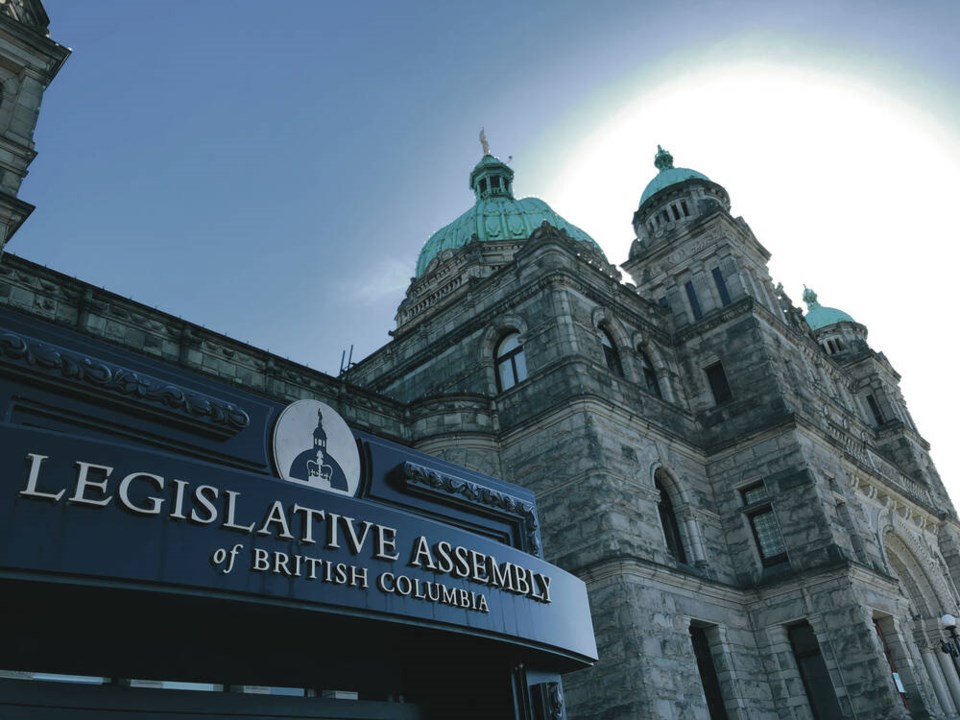The provincial election is fast approaching, but what exactly is the province responsible for, and what is the federal government responsible for?
It can be confusing, and if you don't know this basic breakdown, it can be hard to know what to ask political candidates.
So here's the facts from a
Provincial responsibility
Here's what provinces are responsible for:
- Direct taxation within the province
- Management/sale of public lands belonging to province
- Prisons
- Hospitals
- Municipalities
- Formalization of marriage
- Property and civil rights
- Administration of civil/criminal justice
- Education
- Incorporation of companies
- Natural resources
- Matters of a merely local or private nature
Federal responsibility
The federal government is responsible for:
- Public debt and property
- Regulation of trade/commerce
- Unemployment insurance
- Direct/Indirect taxation
- Canada Post
- Census/statistics
- Defence
- Navigation/shipping
- Quarantines
- Sea coast and inland fisheries
- Currency/coinage
- Banking /incorporation of banks/paper money
- Weights and measures
- Bankruptcy
- Patents
- Copyrights
- First Nations reserves
- Citizenship
- Marriage/divorce
- Criminal law
- Works connecting provinces; beyond boundaries of one province; within a province but to the advantage of Canada/or more than one province
Shared powers
These issues are shared between the province and the federal government:
- Old age pensions
- Immigration
- Agriculture
Riding info
For provincial elections, Squamish is in the riding, or electoral district, of West Vancouver-Sea to Sky.
The population of the West Vancouver-Sea to Sky electoral district, according to data from the Statistics Canada 2021 Census is 62,161.
Who is running in our riding?
The BC United Party's Jordan Sturdy is Squamish's outgoing Member of the Legislative Assembly (MLA). He is retiring from politics.
In the West Vancouver-Sea to Sky, the candidates running to be our next MLA are, in alphabetical order by their last names:
• —BC NDP
• —Conservative Party of British Columbia
• —BC Green Party
is not running a candidate.
History of riding
The electoral district name of West Vancouver-Sea to Sky has been in place since 2009. Before that, our voting district was called West Vancouver-Garibaldi.
This region has long been a Liberal Party stronghold, which makes this upcoming election so interesting.
Here's who was elected since 1996:
• In 1996, Ted Nebbeling of the British Columbia Liberal Party (now BC United) for the West Vancouver-Garibaldi riding with 57.17% of the popular vote.
• In 2001, Nebbeling to be the MLA for West Vancouver-Garibaldi, with 68.18% of the vote.
• In 2005, Joan McIntyre of the BC Liberal Party in West Vancouver-Garibaldi, with 50.35% of the vote.
• In 2009, when our electoral district took the name West Vancouver-Sea to Sky, McIntyre , with 54.91% of the vote.
• In 2013, Jordan Sturdy, of the BC Liberal Party , with 52.50% of the vote.
• In 2017, with 43.08% of the vote.
• In 2020, with 37.54% of the vote.
Note: This information was taken directly from either the or documents accessed from its website. We are going back to 1996 because that is what is easily accessible on the Elections BC website. Find more historic election results here:
Elections BC fun election history facts
• B.C. became a province of Canada on July 20, 1871.
• The first provincial general election was held in 1871 from October through December; There were 46 candidates and no organized political parties.
• The original voting age was 21.
• In 1952, the voting age was changed from 21 to 19.
• In 1977, liquor sales were allowed on election day for the first time.
• In 1992, the voting age was lowered to 18.
has lots more information on all things voting.
See our other election explainer: .
